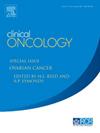缺乏免疫治疗药物对肺癌患者生存的影响
IF 3
3区 医学
Q2 ONCOLOGY
引用次数: 0
摘要
肺癌是全球癌症相关死亡的主要原因。随着治疗的巨大进步,诸如免疫疗法等昂贵治疗的可及性和可获得性可能受到经济因素的影响。本研究旨在探讨黎巴嫩的经济危机如何影响转移性非小细胞肺癌(NSCLC)患者的无进展生存期(PFS)。材料和方法对黎巴嫩一家三级医疗中心84例IV期NSCLC患者进行了回顾性研究。根据治疗时间将患者分为两组:对照组(2019年1月至2020年12月)和危机组(2021年10月至2022年12月)。收集和分析了患者人口统计学、治疗方案、剂量密度和PFS的数据。结果对照组的PFS中位数为11.11个月,而危机组为8.40个月。对照组中更多的患者接受了免疫治疗(46.9%对31.4%,p = 0.47)。重要的是,与接受全剂量免疫治疗的患者相比,接受低于标准免疫治疗剂量50%的患者的PFS并不短。统计分析显示免疫治疗剂量密度与PFS无显著相关性(p = 0.107)。结论在转移性NSCLC一线治疗中获得免疫治疗药物对PFS有明显影响。然而,与接受全剂量免疫检查点抑制剂(ICIs)的患者相比,接受低剂量免疫检查点抑制剂(ICIs)的患者表现出相似的PFS,这挑战了传统的剂量策略,并表明可以通过低剂量方案实现有效的癌症治疗。这些发现为进一步研究免疫治疗剂量与PFS之间的关系打开了大门。本文章由计算机程序翻译,如有差异,请以英文原文为准。
Effects of Lack of Access to Immunotherapy Medications on Survival of Lung Cancer Patients
Aims
Lung cancer is the leading cause of cancer-related deaths globally. With the great advancements in the treatment, the accessibility and availability of expensive treatments such as immunotherapy can be affected by economic factors. This research aims to examine how the economic crisis in Lebanon influenced the progression-free survival (PFS) of individuals with metastatic non-small cell lung cancer (NSCLC).
Materials and Methods
A retrospective study was conducted on 84 patients with stage IV NSCLC treated at a tertiary care center in Lebanon. Patients were divided into two groups based on their treatment period: a control group (January 2019- December 2020) and a crisis group (October 2021 - December 2022). Data on patient demographics, treatment regimens, dose densities, and PFS were collected and analysed.
Results
The control group had a median PFS of 11.11 months, compared to 8.40 months for the crisis group. More patients in the control had access to immunotherapy (46.9% versus 31.4%, p = 0.47). Importantly, patients who received less than 50% of the standard immunotherapy dose did not have a shorter PFS compared to those who received the full dose. Statistical analysis did not reveal a significant correlation between immunotherapy dose density and PFS (p = 0.107).
Conclusion
Access to immunotherapy medications in first line therapy of metastatic NSCLC has a clear impact on PFS. However, patients receiving lower doses of immune checkpoint inhibitors (ICIs) demonstrated a similar PFS compared to those receiving full doses, which challenges conventional dosing strategies and suggests that effective cancer treatment can be achieved with lower dosing regimens. These findings open the door for further investigation to explore the relationship between immunotherapy dose and PFS.
求助全文
通过发布文献求助,成功后即可免费获取论文全文。
去求助
来源期刊

Clinical oncology
医学-肿瘤学
CiteScore
5.20
自引率
8.80%
发文量
332
审稿时长
40 days
期刊介绍:
Clinical Oncology is an International cancer journal covering all aspects of the clinical management of cancer patients, reflecting a multidisciplinary approach to therapy. Papers, editorials and reviews are published on all types of malignant disease embracing, pathology, diagnosis and treatment, including radiotherapy, chemotherapy, surgery, combined modality treatment and palliative care. Research and review papers covering epidemiology, radiobiology, radiation physics, tumour biology, and immunology are also published, together with letters to the editor, case reports and book reviews.
 求助内容:
求助内容: 应助结果提醒方式:
应助结果提醒方式:


